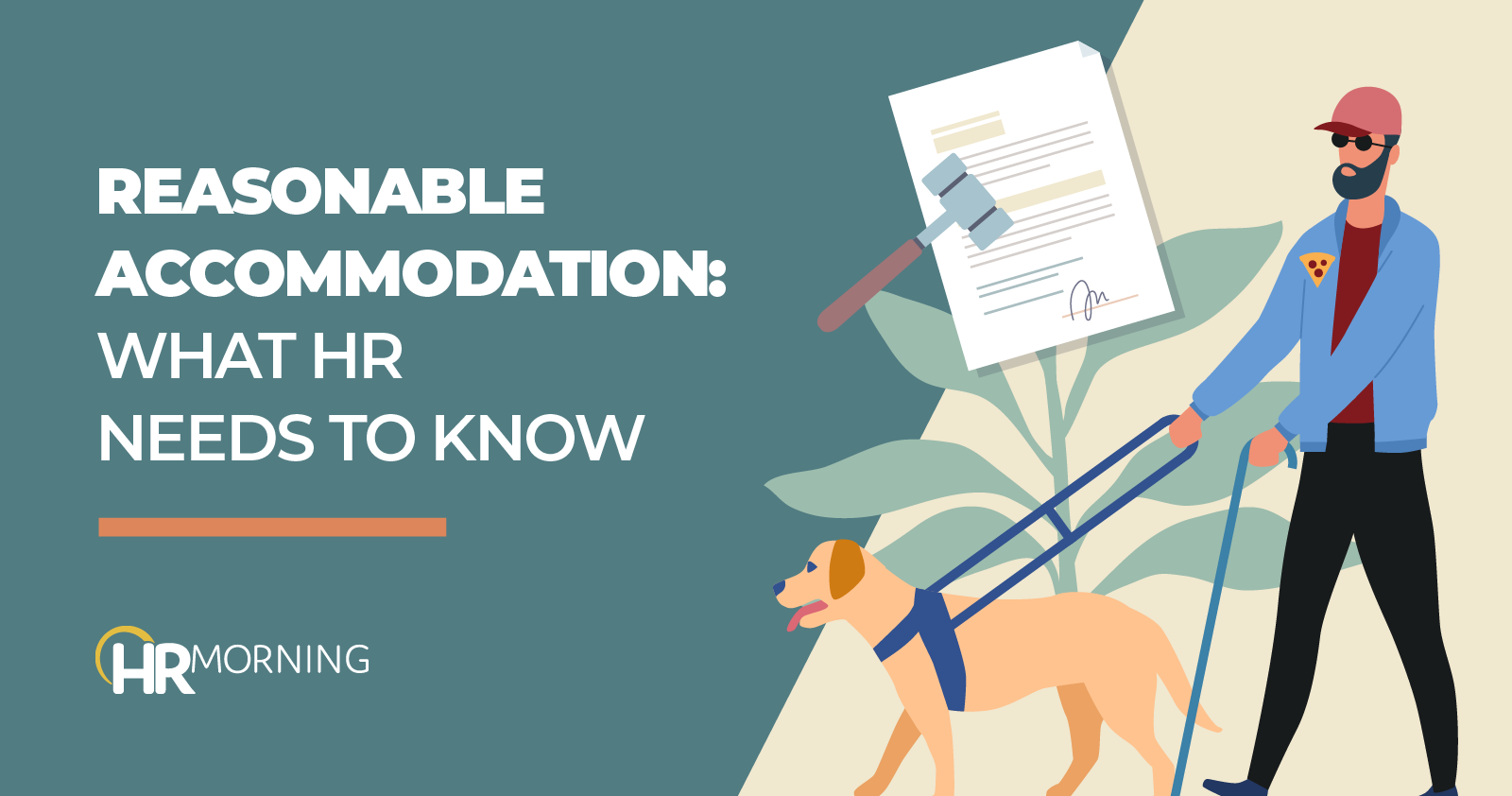The EEOC filed 48 disability accommodation lawsuits in FY 2023, almost doubling the 27 ADA cases it filed the previous year, according to employment attorneys at Seyfarth.
And if the EEOC steps into an ADA dispute, the cost of noncompliance can be pretty steep, as these three recent cases show.
1. Restaurant forks over $175K after denying accommodation
A visually impaired employee in Georgia was fired from his job at an international pizza chain before working a single shift.
An EEOC lawsuit claimed Papa John’s discriminated against the new hire, a legally blind individual, based on his disability in violation of the ADA. Specifically, the EEOC alleged the worker sought an accommodation – to bring his service dog to work, as he was reliant on the animal for his commute. The company denied the employee’s accommodation request and fired him before he worked a single shift, the EEOC said.
Ultimately, the company settled the lawsuit, agreeing to pay $175,000 to the worker. It also agreed to provide ADA training, revise its employment policies and submit to EEOC monitoring.
“Not allowing blind and visually impaired people to travel to and from work in the way that affords them confidence and independence is akin to telling sighted workers who rely on the flexibility and independence of driving that they may not travel to work by car,” the EEOC’s general counsel Karla Gilbride said in a press release. “We are glad that Papa John’s has agreed to provide training to its employees and hope that in the future, no other job applicant who uses a service dog will experience the discrimination that [the employee] faced.”
2. Accommodation request: No calls from angry customers
A call center employee in Rhode Island was forced to resign after his accommodation request was denied, according to the EEOC.
The call center employee was working at Citizens Bank, N.A. when he developed an anxiety disorder. He then asked to be transferred to a position that didn’t require him to field calls from aggravated customers.
The employer refused to reassign the employee or “discuss alternative accommodations until he returned to his job at the call center, the same position his disability prevented him from performing,” the EEOC asserted, even though the company “had hundreds of nearby job openings.” As a result, the employee said he felt he had no choice but to resign.
To resolve the EEOC’s complaint, the company agreed to pay $100,000 to the former employee. It also agreed to revise its accommodation policy, train its employees and HR department and appoint an internal compliance monitor to ensure compliance with the consent decree.
“An employer cannot refuse to engage in the interactive process until an employee returns to the same job that the employee’s disability precludes him or her from performing,” EEOC New York District Office Regional Attorney Jeffrey Burstein said in a press release. “Transferring a qualified employee to a vacant position is a reasonable accommodation under the ADA.”
3. Company denies use of crutches as accommodation
In South Carolina, a Black employee was fired from her job at a title loan company after she complained about racial harassment and then took time off for a disability-related surgery.
According to an EEOC lawsuit, Community Loans of America, Inc. and its subsidiary, Carolina Title Loans, Inc. discriminated against the worker based on her race and disability. Specifically, the suit alleged a branch manager subjected the employee to racial slurs, including the N-word. The employee complained to on-site managers and a company hotline, but no action was taken, the EEOC asserted.
When the employee took time off work for a disability-related surgery, she was not allowed to return to work on crutches. The employer denied the accommodation. Instead of being allowed to use crutches at work, she was forced to remain on unpaid leave until she was fired.
To settle the lawsuit, the company agreed to pay $60,000 to the former worker. It will also revise policies and implement training to prevent race- and disability-based harassment at its branches located in South Carolina.
“The EEOC appreciates that it was able to work with this employer to achieve a just resolution for the aggrieved employee and to secure broad relief for the employer’s South Carolina workforce through training and oversight,” Melinda C. Dugas, regional attorney for the EEOC’s Charlotte District, said in a press release. “Employers can avoid situations like this by taking effective action to eliminate racially hostile conduct in the workplace when they become aware of it and by providing reasonable accommodations to employees with disabilities when they are able to do so without undue hardship.”
Help for HR: Guidance on the interactive process
Earlier this year, we told you about the guidance provided by the Job Accommodation Network (JAN). The tool aims to help employers navigate the interactive process when discussing reasonable accommodations with employees and applicants.
Among other things, JAN’s guidance provides helpful suggestions for:
- Streamlining the process of requesting accommodations
- Exploring, choosing and implementing accommodations
- Monitoring the effectiveness of accommodations, and
- Adjusting accommodations when necessary.


